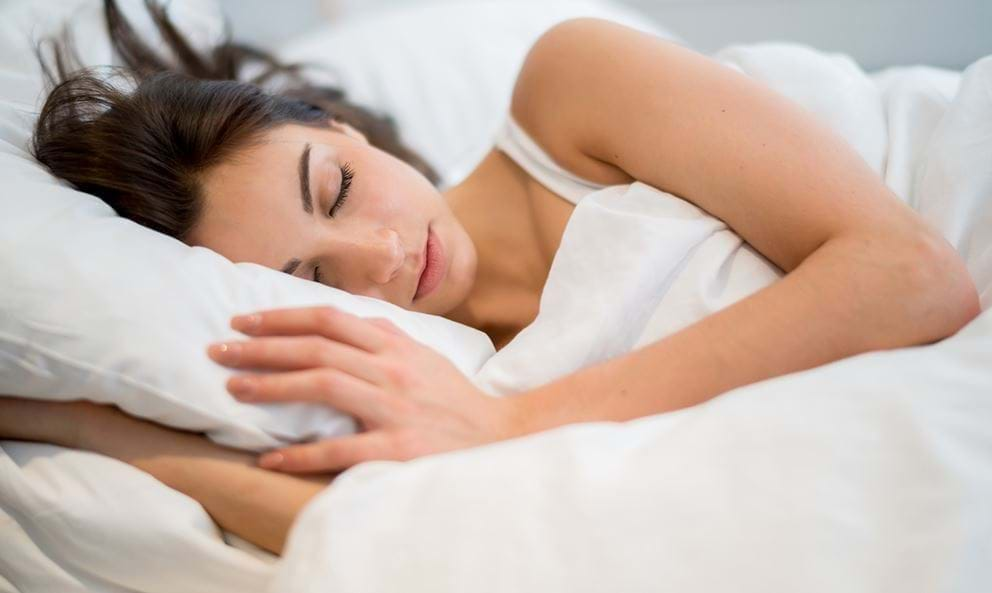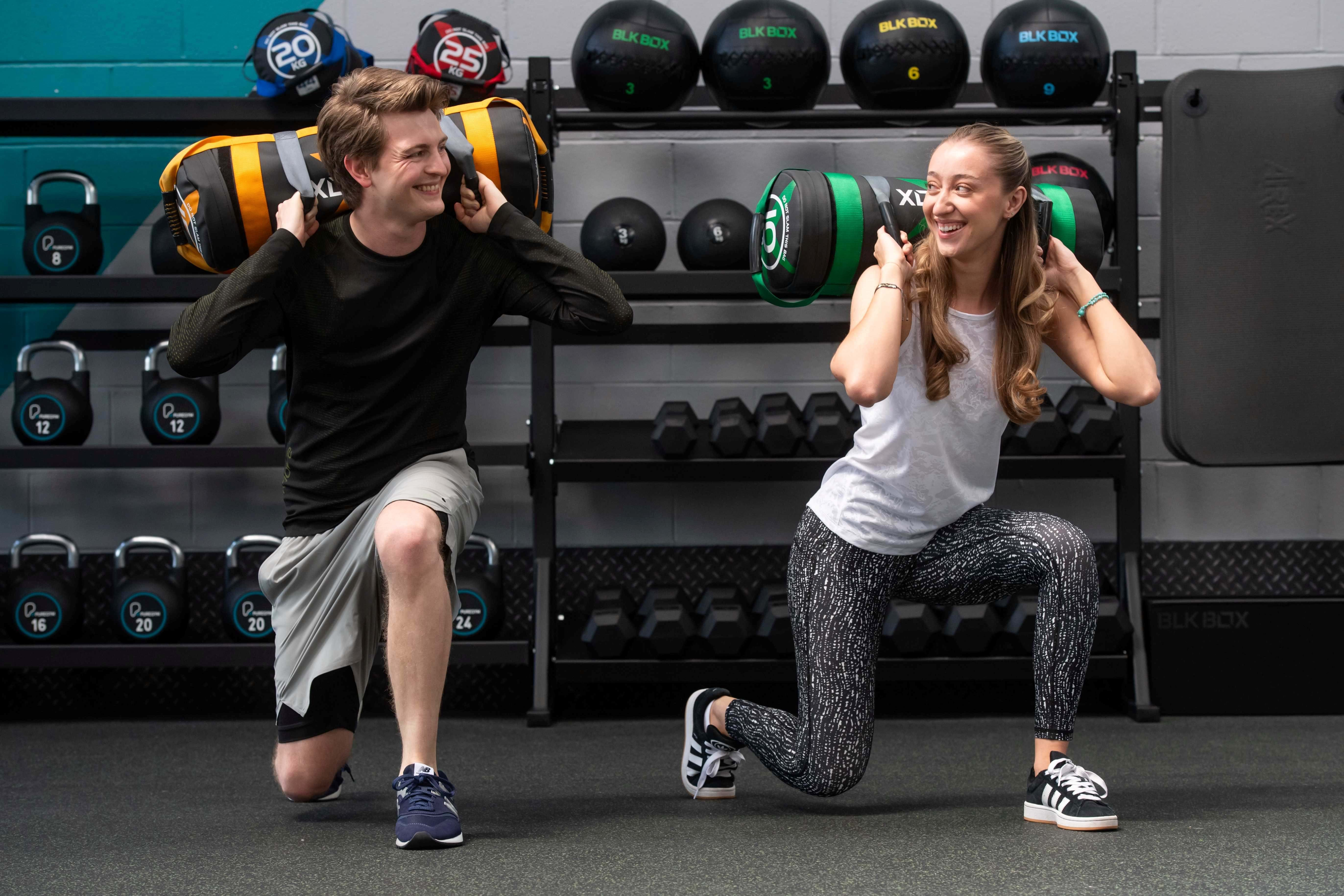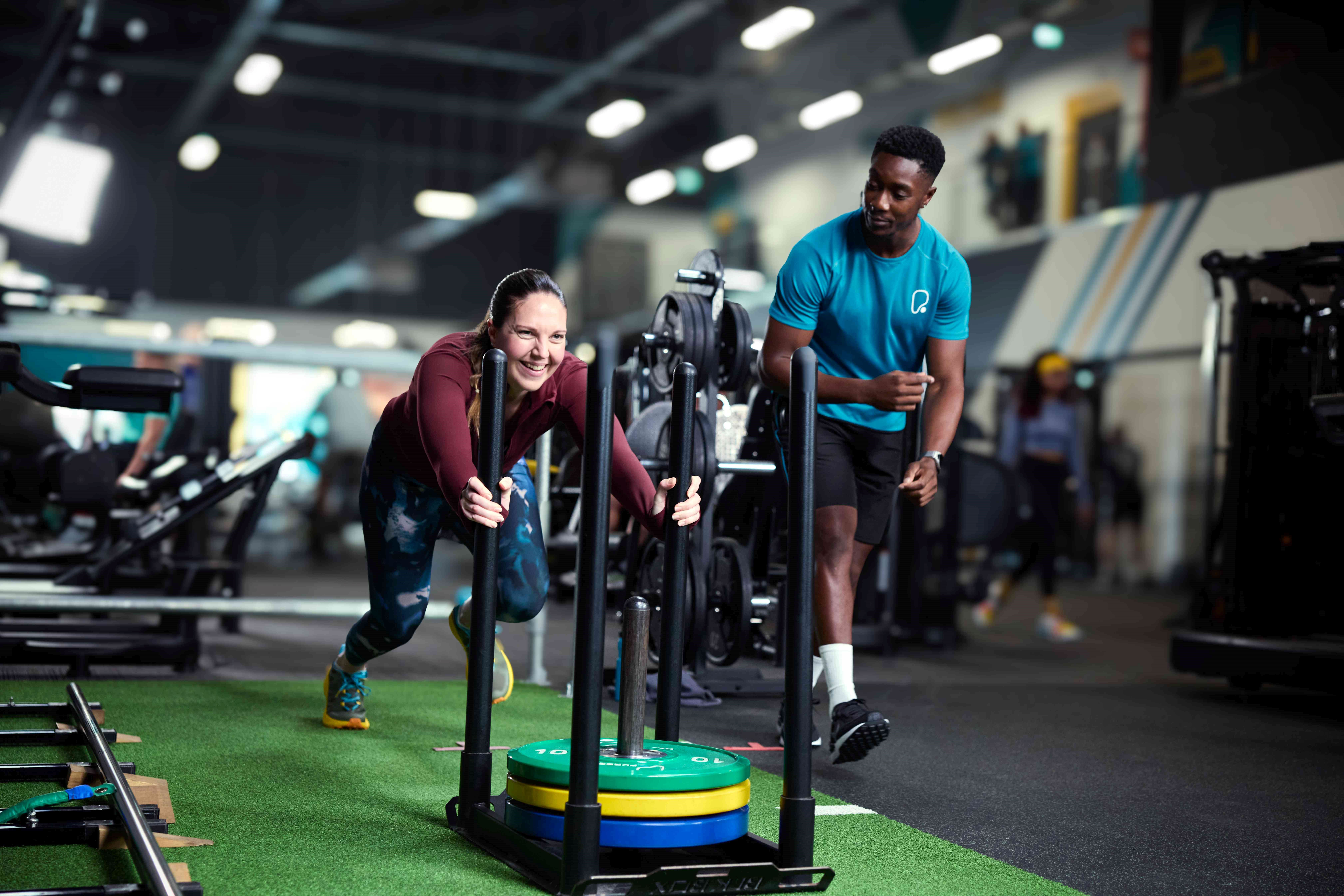Can the Gym Really Help Me Sleep Better?

Good sleep is crucial for overall health. Studies have shown that sleep deprivation is linked to a higher risk of obesity, lower athletic performance, and an increased chance of heart disease and stroke.
With so many people sacrificing sleep to keep up with work, social plans, and everyday stress, getting quality rest has become a major health issue in today’s world.
One common recommendation for improving sleep is exercising more, especially at the gym. In this article, we’ll cover:
- How exercising at the gym can help you sleep better
- How getting more sleep can improve your gym performance
- Other tips for improving your sleep
- How much sleep do you really need?
How Exercising at the Gym Can Help You Sleep Better
1. Aerobic Exercise Can Improve Sleep Quality
Aerobic exercise has been shown to improve sleep quality, boost energy levels, and reduce symptoms of depression.
A 2010 study from Northwestern Medicine found that people with insomnia who did aerobic exercise four times a week went from "poor sleepers" to "good sleepers" based on self-reported sleep quality. The participants also experienced less daytime sleepiness, fewer depressive symptoms, and more energy overall.
2. Exercise Can Help With Sleep Apnea
Obstructive sleep apnea is a condition where a person’s breathing stops and starts throughout the night, often causing loud snoring and poor sleep quality. People with sleep apnea often wake up feeling exhausted, even after a full night of sleep.
A 2014 study found that regular exercise significantly reduced the effects of sleep apnea, improved daytime sleepiness, and even boosted cardiorespiratory fitness—so it's not just about sleep; it’s about feeling better all around.
3. Exercise May Help You Fall Asleep Faster
A 2012 study found that people who exercised, whether with moderate aerobics or high-intensity interval training (HIIT), were able to fall asleep much faster than those who didn’t. This is huge, especially for those who struggle with insomnia and have trouble falling asleep in the first place.
4. Moderate Exercise Can Reduce Insomnia-Related Anxiety
Insomnia can be caused by both physical and mental factors—and sometimes a combination of both. A 2010 study showed that moderate-intensity aerobic exercise reduced anxiety related to sleep problems and improved sleep quality for those with insomnia.
5. Bottom Line: Exercise Can Seriously Boost Your Sleep
The evidence is clear: exercise has a major positive impact on the quality and duration of your sleep. If you’re struggling to fall asleep or waking up feeling tired, incorporating regular exercise into your routine might be the solution you need.
How Getting More Sleep Can Boost Your Gym Performance
We've already covered how the gym can help you sleep better, but did you know that getting the right amount of sleep can also improve your performance in the gym? Here's how:
1. Sleep is When Your Body Really Recovers
Exercise works by putting stress on the body, causing tiny tears in your muscles that need to heal. When the body repairs itself properly, it comes back stronger and better able to handle the next workout.
Sleep is when this recovery really happens. Research shows that Growth Hormone levels spike during sleep—but only if you're getting quality rest. Whether you’re a runner or a weightlifter, sleep is essential for recovery and progress. If you want your gym efforts to pay off, make sure you’re getting enough sleep to let your body recover from training.
It’s also important to consider taking regular rest days. Don’t work out every single day—your body needs time to recharge. You can read more about why rest days are crucial here.
2. Poor Sleep Leads to Fat Gain
A 2009 study found that sleep deprivation is directly linked to higher levels of ghrelin (the hunger hormone), lower levels of leptin (which makes you feel full), worse insulin sensitivity (making it easier for your body to store fat), and more.
In short, when you don’t sleep enough, it creates the perfect conditions for weight gain. If weight loss is your goal, it’s especially important to prioritize sleep, as being well-rested helps you keep hunger in check and reduces fat storage.
3. Sleep Deprivation Means ‘Hitting the Wall’ Faster
Studies have shown that while moderate sleep deprivation doesn’t directly affect cardiovascular health or muscle strength, it does shorten the time it takes to feel exhausted. Plus, people who don’t get enough sleep tend to feel like they’re working harder, even if their physical condition hasn’t changed.
What this means is that if you’re sleep-deprived, you’re going to run out of steam much quicker during your workout. This is especially bad for endurance athletes, but it’s true for everyone. Plus, being tired makes it a lot harder to even get motivated to hit the gym in the first place.
Other Tips for Getting a Better Night's Sleep
To help you get all the benefits of a good night’s sleep, we asked Dr. Sarah Hattam to share some tips that you can start using today.
1. Create a Routine
Whether you’re working from home or on the frontlines as an essential worker, having a solid sleep routine will help keep you productive. Try setting a sleep schedule based on your daily routine and stick with it for a few weeks. You can even keep a sleep journal to track how you’re feeling—like if you’re sleepy in the afternoons—and adjust the schedule as needed.
2. Limit Your Caffeine and Alcohol Intake
Caffeine is a stimulant that can keep you awake, so try to cut back on coffee, tea, and energy drinks, especially later in the day. While alcohol may help you fall asleep faster, it can interfere with the "rest and relax" part of our nervous system, keeping you in a heightened "stress" state, which disrupts your sleep quality. Pay attention to your intake and try to avoid drinking alcohol in the evening.
3. Make Time to Unwind
A busy mind can make it harder to fall asleep. Establishing a calming bedtime routine, like taking a warm bath, having a warm drink, and reading a book, can help you relax and signal to your body that it's time to wind down.
4. Avoid Blue Light Before Bedtime
The Sleep Council suggests avoiding electronics an hour before bedtime because the blue light from screens can interfere with the release of melatonin, the hormone that helps you sleep. Try putting your phone in another room to help you break the habit of scrolling before bed.
5. Set the Scene for Sleep
Dimming the lights an hour before bed helps your body release melatonin, signaling that it’s time to sleep. Gentle sounds, like those found on apps like Windy or Calm, can also help you relax and drift off to sleep.
6. Sleep in a Cool Environment
A drop in body temperature signals to your body that it’s time to sleep, so keep your bedroom cooler than the rest of your home. Avoid overheating your bed with things like hot water bottles or electric blankets, as a cool room promotes better rest.
7. How Much Sleep Do You Need?
The amount of sleep you need varies, but most people need around 8 hours a night. A recent survey found that most adults in the U.S. get by on 7 hours or less, with many only getting 5 to 6 hours per night. So, if you’re not getting enough sleep, you’re not alone—and you might benefit from getting a bit more shut-eye.


